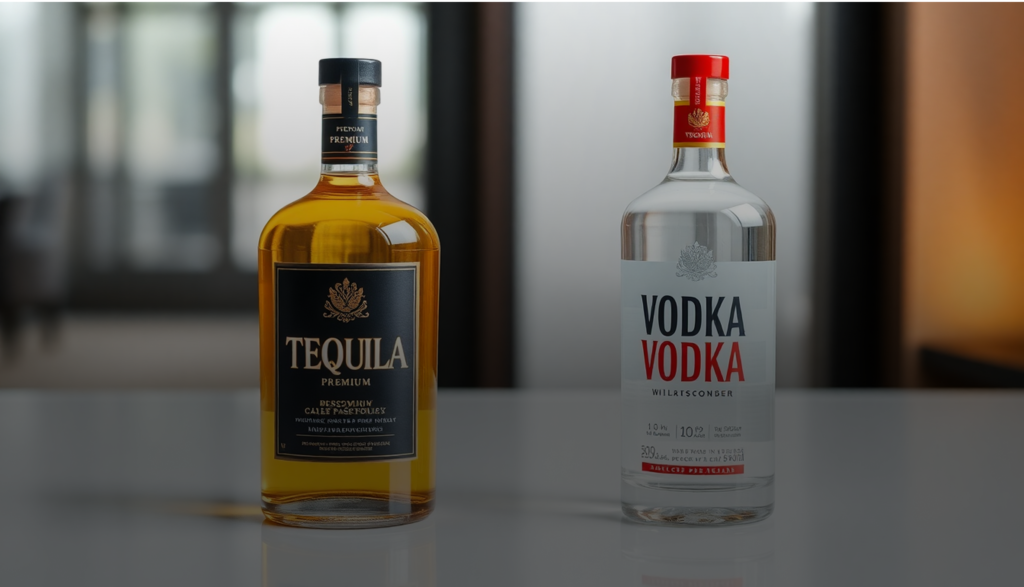In a bold reshaping of its portfolio, Diageo has traded its North American ownership of Cîroc Ultra-Premium Vodka for a global majority stake in Lobos 1707 Tequila. The deal, executed through a new joint venture with investment firm Main Street Advisors, underscores the beverage giant’s pivot toward premium agave spirits amid shifting consumer preferences and declining vodka sales.
Multiple sources, including Just Drinks, FoodDive, and The Drinks Business, report that this transaction not only marks the end of Diageo’s long-standing association with rapper Sean “Diddy” Combs but also sets the stage for deeper cultural alignment and targeted engagement with Gen Z consumers.
Key Developments
The agreement sees Diageo relinquishing majority control of Cîroc’s brand rights in North America—while retaining them elsewhere—in return for global control of Lobos 1707, a rising Tequila and mezcal brand co-founded by Diego Osorio and backed by NBA star LeBron James. The joint venture combines Diageo’s operational and distribution capabilities with Main Street Advisors’ track record in scaling culturally resonant brands.
As noted by Just Drinks, this marks a decisive turn for Cîroc, whose North American sales have steadily declined, with volumes falling 28% organically in the six months to December 2023. Once championed by Sean “Diddy” Combs, the brand suffered from reputational challenges in recent years, culminating in a legal dispute that was settled in early 2024. This transaction effectively draws a line under that chapter, opening the door for refreshed brand management under the new venture.
Meanwhile, FoodDive highlights the strong market potential of Lobos 1707. Since its launch in 2020, the brand has resonated with Gen Z consumers drawn to authentic, aged spirits. Its Tequilas, aged in oak and sherry barrels, have found early traction in North America and entered the UK market via Selfridges in 2023. Diageo’s pivot reflects broader market trends, with Tequila consumption on the rise and a growing emphasis on luxury spirits and culturally relevant storytelling.
Adding context, The Drinks Business frames the deal within Diageo’s long-term strategy, describing it as a form of portfolio optimisation. The spirits giant is shifting focus from a declining vodka category toward Tequila, which has achieved 34% household penetration in North America. The appointment of Nick Tran—former global head of marketing at TikTok—as president and CMO of the new venture signals a future-forward approach to brand building, geared towards younger, digitally native audiences.
Market Impact & Strategic Analysis
This trade reflects Diageo’s calculated pivot toward the growing Tequila segment, which now boasts a 34% household penetration rate in North America compared to vodka’s 44%—a gap that continues to narrow as consumer tastes evolve. Tequila’s premiumisation and cultural cachet offer a stronger growth outlook, particularly among Gen Z consumers who seek authenticity, heritage, and digital-first brand experiences.
Lobos 1707 is well-positioned to benefit from this trend. With celebrity backing, distinctive barrel-aging processes, and a strong North American foothold, it aligns with Diageo’s emphasis on luxury and lifestyle-oriented products. The appointment of Nick Tran—former global head of marketing at TikTok—as president and CMO of the venture signals a commitment to digital-native storytelling and culturally relevant engagement.
For investors, this joint venture structure reduces Diageo’s short-term exposure to Cîroc’s underperformance (with net sales falling 32% in H1 FY24, per Just Drinks) while opening up long-term potential through Lobos 1707’s global expansion. Distributors and retailers may see shifting portfolio dynamics as Diageo doubles down on agave-based spirits, creating new opportunities and challenges within premium spirits shelving and promotion strategies.
Summary & Industry Outlook
Diageo’s decision to trade Cîroc’s North American stake for control of Lobos 1707 marks a clear signal to the beverage industry: Tequila and culturally resonant brands are central to the future of premium spirits. With the backing of a Gen Z-savvy marketing team and deep operational infrastructure, expect more portfolio reconfigurations and strategic collaborations as brands seek to capture the evolving spirits market.
